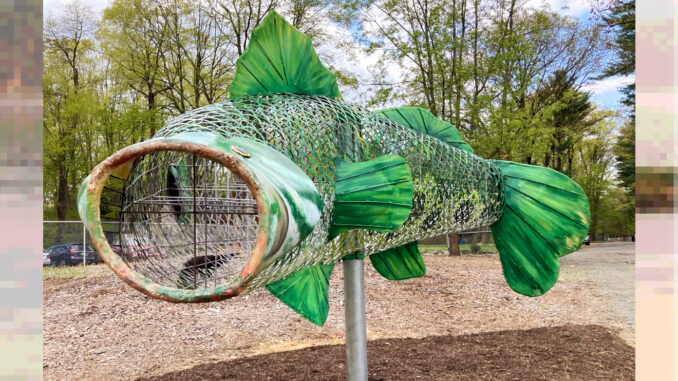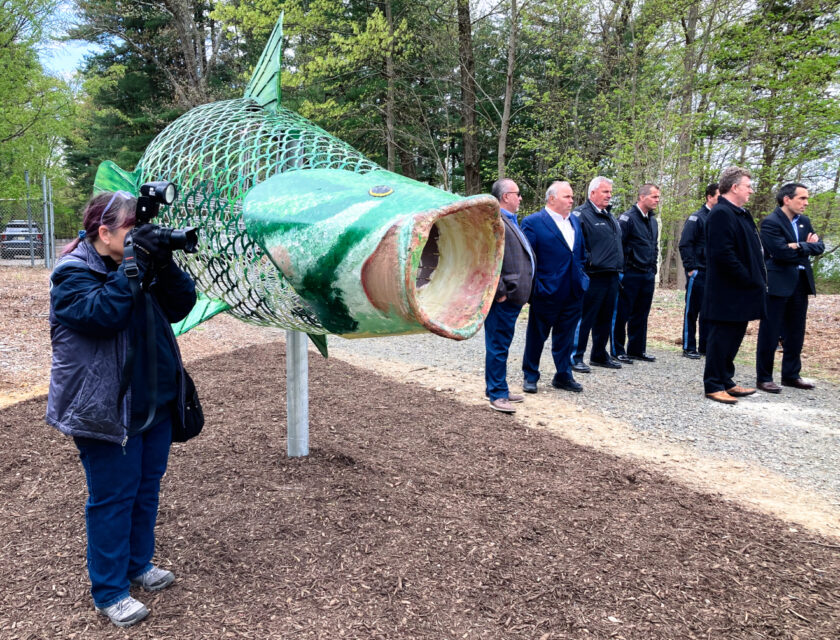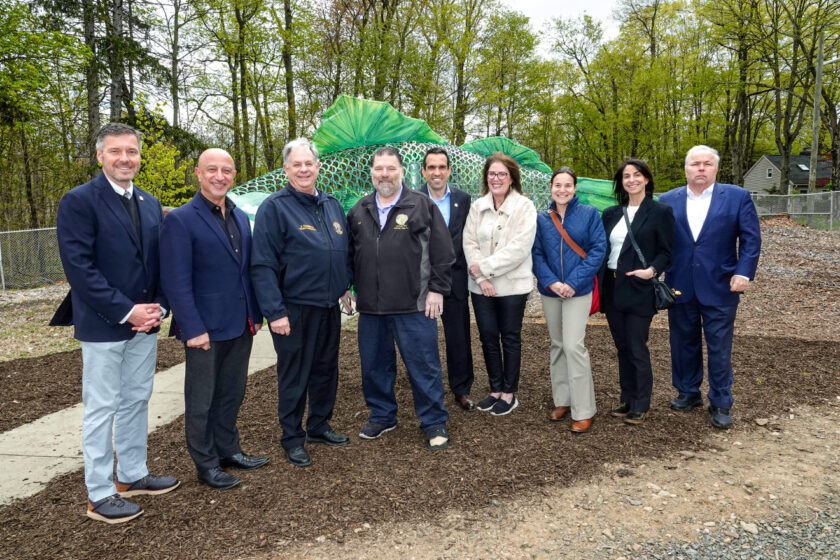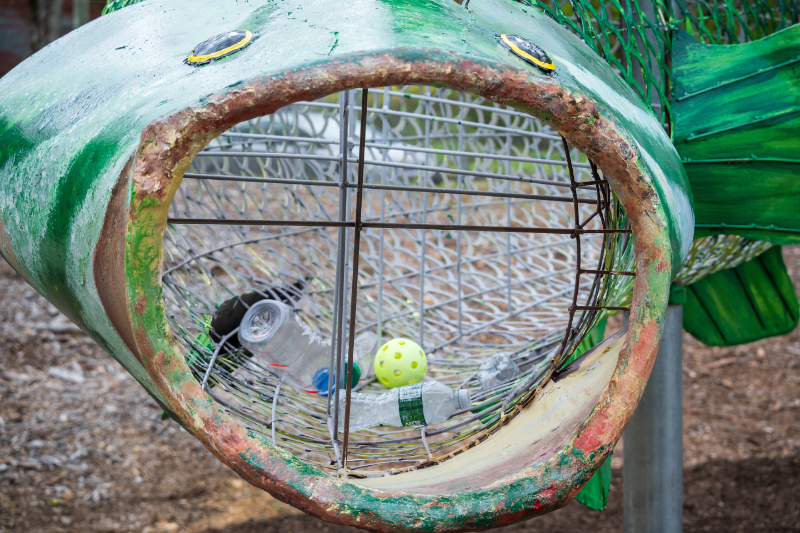
WOODCLIFF LAKE—A gigantic largemouth bass has been spotted at the Woodcliff Lake Reservoir, weighing a whopping 300 pounds and sporting a hungry look.
Meet Finn, the Green Gobbler, a massive fish sculpture with an even bigger message about protecting our planet.
Boston-based Veolia brought Finn to its new home at the reservoir to celebrate Earth Month – and to encourage residents to take action to protect the watershed.
At 11 feet long, Finn is constructed from repurposed metals and is hollow so visitors to the reservoir can fill it with plastic debris they find in the area. Finn’s belly is big enough to hold more than 15 trash bags of plastic bottles.
“We wanted to create a space where visitors to Woodcliff Lake could enjoy the scenery while making a difference just by taking a walk,” said Alan Weland, vice president and general manager of Veolia’s New Jersey operations at the unveiling — at the fishing gate off Reservoir Road — April 19.
Finn is a playful way to encourage the community to get active in protecting the watershed and also serve as a reminder about how harmful plastic is to waterways. Plastic waste makes up 80% of all marine pollution.
“As we celebrate Earth Month, we want to remind our communities that we all have a vested interest in keeping our environment clean,” Weland said. “Healthy watersheds mean healthy communities.”

The event reeled in VIPs and other stakeholders: Holly Schepisi, NJ Senator District 39; James Tedesco NJ County Executive; Tom Sullivan, Commissioner Chairman; Tom Padilla, Borough Administrator Woodcliff Lake; Jennfier Margolis, Council President Woodcliff Lake; Michael Ghassali, Mayor of Montvale; Mike Panos, Hackensack Riverkeeper director of Donor Relations; Violet Reed, executive director MEVO; Alexa Fantacone, executive director NJ Audubon Lorrimer Sanctuary; Jim Swaim, Environmental Sculptures; and Nicole Marsh, councilperson Woodcliff Lake.
Finn is just one way Veolia is encouraging communities to join the company in taking action to protect our planet. Ecological transformation is at the heart of Veolia’s business, and its employees across the nation are creating innovative solutions to conserve water, reduce energy consumption, and protect local ecosystems like the North Jersey watershed.

Finn sits near the public fishing gate on Reservoir Road, an area where Veolia crews as well as community groups often hold cleanups to clear the debris that has been carried downstream. Plastic bottles and other plastics make up much of the trash pulled out of the reservoir.
Jim Swaim of Environmental Sculptures created Finn along with 80 other sculptures placed in the U.S. and internationally for the purpose of recycling and keeping public areas near waterways clear.
“Every time I get the chance to build one of these sculptures, it transforms the area and its possibilities,” Swaim said. “When anybody takes a look at one of these sculptures they understand there is a problem with plastic. It’s undeniable that it is doing damage to wildlife and our environment.”
Veolia Group says it aims to be the benchmark company for ecological transformation. With nearly 220,000 employees worldwide, the Group designs and provides game-changing solutions that are both useful and practical for water, waste and energy management. Through its three complementary business activities, Veolia helps to develop access to resources, preserve available resources and replenish them.
In 2021, the Veolia group provided 79 million inhabitants with drinking water and 61 million with sanitation, produced nearly 48 million megawatt hours and recovered 48 million tonnes of waste.

